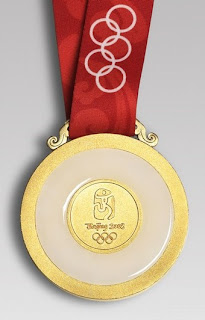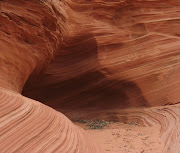 Olympic sailing venues in Quingdao. None of the 30 Olympic teams, currently in country with all of their expensive equipment, are able to practice or train as officials think it shall take at least two more weeks to get the organic muck all cleaned up and out. At this time, crewing, rowing or sailing ones boat ashore would just make it a magnet for algae collection and not a measure of the speed needed to win a race. Chinese officials are gobsmacked over the raging rise of the algae in the Yellow Sea going so far as to call the algae, sea weeds.
Olympic sailing venues in Quingdao. None of the 30 Olympic teams, currently in country with all of their expensive equipment, are able to practice or train as officials think it shall take at least two more weeks to get the organic muck all cleaned up and out. At this time, crewing, rowing or sailing ones boat ashore would just make it a magnet for algae collection and not a measure of the speed needed to win a race. Chinese officials are gobsmacked over the raging rise of the algae in the Yellow Sea going so far as to call the algae, sea weeds.What really makes the Chinese officials head explode is that they had packed up and moved the industrial complex, including a boat yard, just for the Olympics, established green expanses andMore than 10,000 workers and 1,000 boats are cleaning up the bright green algae
that has smothered the city's beaches and extends far into the Yellow Sea, about 550 kilometres (340 miles) southeast of Beijing, Xinhua said.
About 16 square kilometers (10 square miles) -- a third of the protected sea area for the sailing events -- are choked with algae, the report said.
In total, the algae has affected 13,000 square kilometers (8,080 square miles) of sea, the report said.
Workers have so far pulled out 100,000 tonnes of algae, the report said.
 upgraded pollution controls to showcase the city of Qingdao as host for the sailing venues. That part of the project cost billions of yuan or about $850 million US. The city is rated China's 9th most livable city. In its moment of crisis the city elders appealed to ther cities along the coast to assist and hopefully stop the spread of the algae. In another massive construction project, the Yellow River was rerouted to provide Beijing with enough water during the Olympics. Choking from China's air pollution was in Beijing was seen as one of the biggest upcoming issues until the algae outbreak along the coast.
upgraded pollution controls to showcase the city of Qingdao as host for the sailing venues. That part of the project cost billions of yuan or about $850 million US. The city is rated China's 9th most livable city. In its moment of crisis the city elders appealed to ther cities along the coast to assist and hopefully stop the spread of the algae. In another massive construction project, the Yellow River was rerouted to provide Beijing with enough water during the Olympics. Choking from China's air pollution was in Beijing was seen as one of the biggest upcoming issues until the algae outbreak along the coast.
Record rains were the least of the problem making this catastrophe. An infrastructure that does not have bestThe games are a huge opportunity for Qingdao to build its brand. German colonizers in the early 20th century left the city with its two best-known features: the European-style buildings of its
old town and the brewery that makes China's best-known beer, Tsingtao — the
old-style spelling of the city's name.The Olympic marina sits at Fushan Bay, up the coastline on the East China Sea beside the new, high-gloss, glass-and-marble city center.
Qingdao created 100 acres (40 hectares) of land for dormitories,
offices and boat storage by moving out the enormous Beihai boat yard.The blue-green algae blossomed around June 1 in waters off Qingdao on the coast of Shandong province, about 400 miles (600 kilometers) southeast of Beijing. Its bright green strands have smothered beaches forcing swimmers to clear a path with their hands up to several hundred feet (meters) from the coast.
 in class sewage treatment combined with exploding population increases with farmers using inordinate amounts of fertilizer for the required crop yields streaming into the sea alongside household cleaning detergents for an ironic twist to emit nitrogen, which spurred a massive moat of green crap for all of China's visitors to see. An Olympian seeking a gold sailing medal is currently being defeated by the pervasive blooms that have reached proportions never before seen this year. Some algae has often sprouted on Green Island, a port city with miles of beaches, but nothing that requires a cast of thousands just to remove it. Chinese officials say its excess salt and the water temp. Yeah, right. Who wants to believe they are sailing for their world dream in a sea of untreated turd blossoms let alone recount the story.
in class sewage treatment combined with exploding population increases with farmers using inordinate amounts of fertilizer for the required crop yields streaming into the sea alongside household cleaning detergents for an ironic twist to emit nitrogen, which spurred a massive moat of green crap for all of China's visitors to see. An Olympian seeking a gold sailing medal is currently being defeated by the pervasive blooms that have reached proportions never before seen this year. Some algae has often sprouted on Green Island, a port city with miles of beaches, but nothing that requires a cast of thousands just to remove it. Chinese officials say its excess salt and the water temp. Yeah, right. Who wants to believe they are sailing for their world dream in a sea of untreated turd blossoms let alone recount the story.What the outbreak portends is a water quality issue. During several outbreaks last year China was forced to reduce or cut off unsafe water supplies. Fresh water is at a premium in China, hence the much bigger penalties that foreshadow bigger crackdowns on those polluters especially contaminating freshwater lakes.

The Olympics begin 08.08.08 in a piece of poetic day symmetry. China reveres history and numbers. The 2008 offering covering the Olympics from all that went before is from David Wallechinsky and Jaime Loucky, The Complete Book of the Olympics. But another real treat is from the award winning sports enthusiast David Maraniss, simply titled Rome 1960: The Olympics that changed the World. This brand new book is available 1 July, 2008.










1 comment:
I pride myself in knowing a lot about a lot of "stuff" (mostly trivia). However, this algae problem in China escaped my notice. Wow! Thanks for sharing. I am humbled. (But now I know at least ONE more thing)(smile) - Nards
Post a Comment